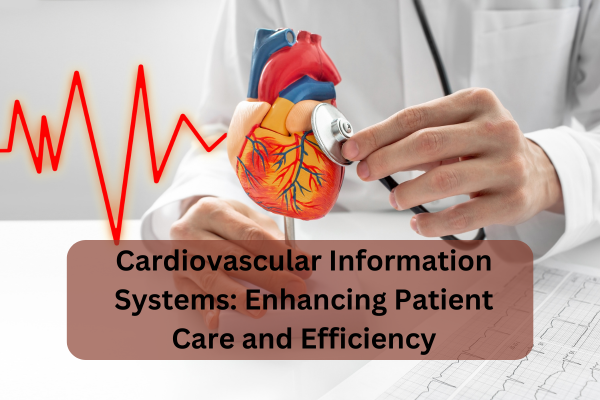 In the ever-evolving world of healthcare technology, Cardiovascular Information Systems (CVIS) are making significant strides in improving patient care and streamlining healthcare processes. These systems, designed specifically for managing cardiovascular information and images, play a crucial role in the diagnosis, treatment, and management of heart-related conditions. Let’s delve into what Cardiovascular Information Systems are, their benefits, applications, market insights, and their promising future.
In the ever-evolving world of healthcare technology, Cardiovascular Information Systems (CVIS) are making significant strides in improving patient care and streamlining healthcare processes. These systems, designed specifically for managing cardiovascular information and images, play a crucial role in the diagnosis, treatment, and management of heart-related conditions. Let’s delve into what Cardiovascular Information Systems are, their benefits, applications, market insights, and their promising future.
What is Cardiovascular Information Systems?
Cardiovascular Information Systems (CVIS) are specialized healthcare IT systems designed to store, manage, and analyze cardiovascular data, including images, test results, and patient information. These systems are tailored to the unique needs of cardiology departments, allowing for efficient workflow management and comprehensive patient care.
Benefits of Cardiovascular Information Systems
Improved Efficiency: CVIS streamline clinical workflows by integrating various cardiovascular data, reducing the need for manual data entry and enhancing communication among healthcare providers.
Enhanced Patient Care: By providing quick access to critical patient information and diagnostic images, CVIS enables healthcare providers to make more informed decisions, leading to better patient outcomes.
Cost Savings: CVIS helps reduce costs associated with paper-based processes, redundant tests, and unnecessary procedures, ultimately lowering the overall healthcare expenditure.
Quality Improvement: With advanced analytics capabilities, CVIS enables healthcare providers to track and analyze outcomes, leading to continuous quality improvement in cardiovascular care.
Applications of Cardiovascular Information Systems
Image Management: CVIS facilitates the storage and retrieval of cardiac images, such as echocardiograms, angiograms, and MRI scans, ensuring that healthcare providers have access to the latest diagnostic information.
Reporting and Documentation: CVIS automates the reporting process, allowing healthcare providers to quickly generate accurate and comprehensive reports for referring physicians and patients.
Workflow Optimization: CVIS streamline clinical workflows by automating tasks such as appointment scheduling, test ordering, and result reporting, improving efficiency and reducing errors.
Market Research and Insights
The global Cardiovascular Information Systems market is witnessing significant growth, driven by factors such as the increasing prevalence of cardiovascular diseases, technological advancements in healthcare IT, and the growing adoption of electronic health records.
According to market research reports, the CVIS market is expected to continue its growth trajectory in the coming years, with a focus on enhancing interoperability, integrating artificial intelligence, and improving data security.
The Future of Cardiovascular Information Systems
The future of Cardiovascular Information Systems looks promising, with ongoing advancements in technology and healthcare delivery. Key trends shaping the future of CVIS include:
Interoperability: CVIS are expected to become more interoperable, allowing for seamless data exchange among different healthcare systems and providers.
Artificial Intelligence: The integration of AI into CVIS is expected to enhance diagnostic capabilities, improve treatment planning, and personalize patient care.
Telemedicine: CVIS are likely to play a significant role in telemedicine, enabling remote monitoring and consultation for patients with cardiovascular conditions.
Conclusion
Cardiovascular Information Systems are revolutionizing the way cardiovascular care is delivered, enhancing patient care, improving efficiency, and reducing costs. With continued advancements in technology and healthcare, CVIS are poised to play an even more significant role in the future, ensuring better outcomes for patients with cardiovascular diseases.
A market research company is a specialized organization that gathers, analyzes, and interprets data related to market trends, consumer behavior, and competitive landscapes. These companies employ various methodologies, such as surveys, interviews, and data analysis, to provide valuable insights to businesses looking to make informed decisions.














